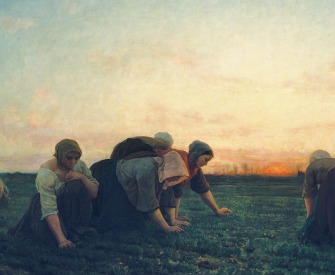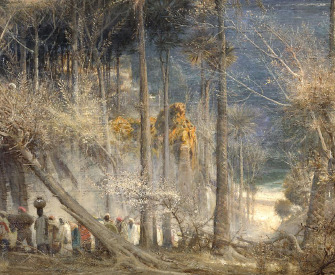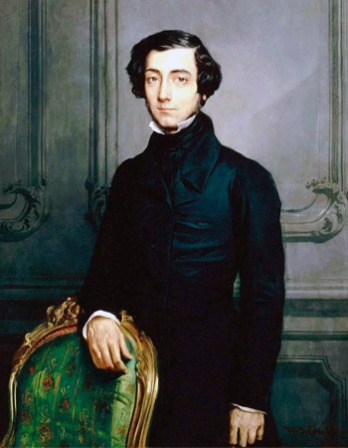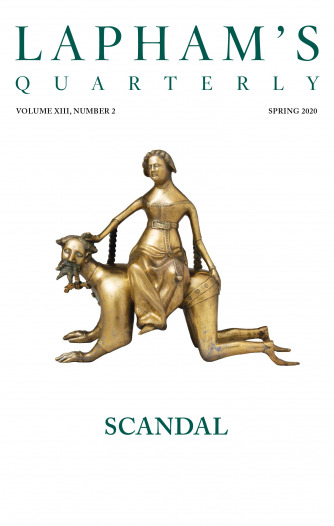The critique of religion is the prerequisite of every critique. Man, who has found only his own reflection in the fantastic reality of heaven, where he sought a supernatural being, will no longer be disposed to find only the semblance of himself, only a nonhuman being, here where he seeks and must seek his true reality.
The foundation of irreligious criticism is this: man makes religion; religion does not make man. Religion is, in fact, the self-consciousness and self-esteem of man who has either not yet gained himself or has lost himself again. But man is no abstract being squatting outside the world. Man is the world of man, the state, society. This state, this society, produce religion, which is an inverted world consciousness, because they are an inverted world. Religion is the general theory of this world, its encyclopedic compendium, its logic in popular form, its spiritualistic point d’honneur, its enthusiasm, its moral sanction, its solemn complement, its universal basis of consolation and justification. It is the fantastic realization of the human being because the human being has attained no true reality. Thus, the struggle against religion is indirectly the struggle against that world of which religion is the spiritual aroma.
The wretchedness of religion is at once an expression of and a protest against real wretchedness. Religion is the sigh of the oppressed creature, the heart of a heartless world, and the soul of soulless conditions. It is the opium of the people.
The abolition of religion as the illusory happiness of the people is a demand for their true happiness. The call to abandon illusions about their condition is the call to abandon a condition which requires illusions. Thus, the critique of religion is the critique in embryo of the vale of tears of which religion is the halo.
Criticism has plucked the imaginary flowers from the chain, not so that man shall bear the chain without fantasy or consolation, but so that he shall cast off the chain and gather the living flower. The critique of religion disillusions man so that he will think, act, and fashion his reality as a man who has lost his illusions and regained his reason, so that he will revolve about himself as his own true sun. Religion is only the illusory sun about which man revolves so long as he does not revolve about himself.
It is the task of history, therefore—once the other-world of truth has vanished—to establish the truth of this world. It is above all the task of philosophy, which is in the service of history, to unmask human self-alienation in its secular forms, once its sacred form has been unmasked. Thus, the critique of heaven is transformed into the critique of the earth, the critique of religion into the critique of law, the critique of theology into the critique of politics.
From A Contribution to the Critique of Hegel’s Philosophy of Right. Fearing the effects of anti-Semitism on his family, Marx’s father had the boy christened in the Evangelical Established Church at the age of six. Playing the parlor game “Confessions” in the mid-1860s, the father of modern communism said his “idea of happiness” was “to fight” and his “favorite virtue” was “simplicity”; his friend Engels answered, respectively, “Chateau Margaux 1848” and “jollity.”
Back to Issue





